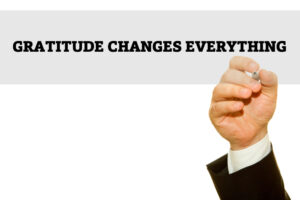 In the high-stakes world of day trading, emotions run hot. Gains and losses happen in the blink of an eye, and the pressure to make split-second decisions is relentless. Understanding and managing emotions like regret vs. disappointment in trading can make the difference between long-term success and burnout in this fast-paced environment.
In the high-stakes world of day trading, emotions run hot. Gains and losses happen in the blink of an eye, and the pressure to make split-second decisions is relentless. Understanding and managing emotions like regret vs. disappointment in trading can make the difference between long-term success and burnout in this fast-paced environment.
While these two feelings often get lumped together, they’re fundamentally different. More importantly, one can be a tool for growth, while the other can lead to stagnation and a downward spiral.
The Difference Between Regret and Disappointment
Regret occurs when we realize we could have made a better decision. It’s a cognitive process tied to specific actions—or inactions—that didn’t lead to the desired result. The upside? Regret is actionable. It offers an opportunity to reflect, learn, and adjust your approach in the future.
Disappointment, on the other hand, is more generalized. It’s the emotional reaction to unmet expectations, often accompanied by helplessness or frustration. While it’s a natural response to failure, disappointment is less productive because it focuses on the outcome rather than the process.
Why Day Traders Need to Understand This Distinction
In trading, regret often stems from specific mistakes: selling too early, holding too long, ignoring a stop-loss, or failing to execute a plan. These are clear, actionable missteps you can analyze and correct.
Disappointment, however, often arises from outcomes beyond your control: the market moved against you despite following your strategy, or you didn’t meet your daily profit goals due to unforeseen volatility. When traders dwell on disappointment, it can lead to emotional trading, clouded judgment, and a loss of confidence.
Performance psychologist Dr. Jason Selk emphasizes the importance of separating process from outcome. He argues that focusing on controllable aspects—like preparation, execution, and discipline—helps individuals recover more effectively from setbacks.
Harnessing Regret to Improve Future Behavior
Dr. Carol Dweck, renowned for her work on mindset, highlights the value of a “growth mindset” in processing regret. Instead of fixating on the mistake itself, traders should view it as a learning opportunity. Here are some exercises inspired by performance psychology to turn regret into actionable insights:
- Conduct a Post-Mortem Review
- After each trading session, identify specific decisions that led to regret.
- Ask yourself:
- Was this a lapse in discipline?
- Did I deviate from my plan?
- What could I do differently next time?
- Write down these reflections in a trading journal. This will reinforce learning and create a roadmap for improvement.
- Reframe Regret as Feedback
- Instead of saying, “I failed,” say, “I learned.”
- For example, if you regret not setting a stop-loss, recognize that the experience has reinforced the importance of risk management.
- Visualize Future Success
- Visualization techniques are widely used by athletes and traders alike. Close your eyes and mentally rehearse how you’ll handle similar situations in the future. Imagine yourself executing your strategy flawlessly, even in challenging market conditions.

- Adopt a Daily Gratitude Practice
- Counterbalance the negative emotion of regret with gratitude. At the end of each trading day, write down three things that went well or that you’re grateful for—this trains your brain to focus on positives rather than spiraling into disappointment.
Avoiding the Emotional Spiral of Disappointment
If left unchecked, disappointment can lead to overtrading, revenge trading, or even quitting altogether. To break free from its grip:
- Set Process-Oriented Goals:
- Shift your focus from making a specific dollar amount to following your strategy consistently.
- Practice Radical Acceptance:
- Acknowledge that some outcomes are beyond your control. As Dr. Jim Loehr, co-founder of the Human Performance Institute, says, “Control what you can control, and let go of the rest.”
- Lean on a Support System:
- Trading can be isolating, but engaging with a community—whether through a mastermind group, a coach, or peers—can help you gain perspective and move past disappointments.
Conclusion
Regret and disappointment in trading are inevitable, but they don’t have to define your journey. You can transform setbacks into stepping stones by viewing regret as a teacher and learning to manage disappointment.
Adrian and Julie Manz, seasoned trading educators, emphasize that successful traders don’t avoid mistakes—they learn from them. Whether refining your strategy, improving emotional discipline, or adopting a continuous improvement mindset, the key is to stay focused on the process, not the outcome.
So, the next time regret rears its head, embrace it. Use it as a catalyst to refine your approach. And when disappointment strikes, remind yourself: the market doesn’t define you; your response does. In the end, resilience and a growth mindset will carry you further than any single trade ever could.

